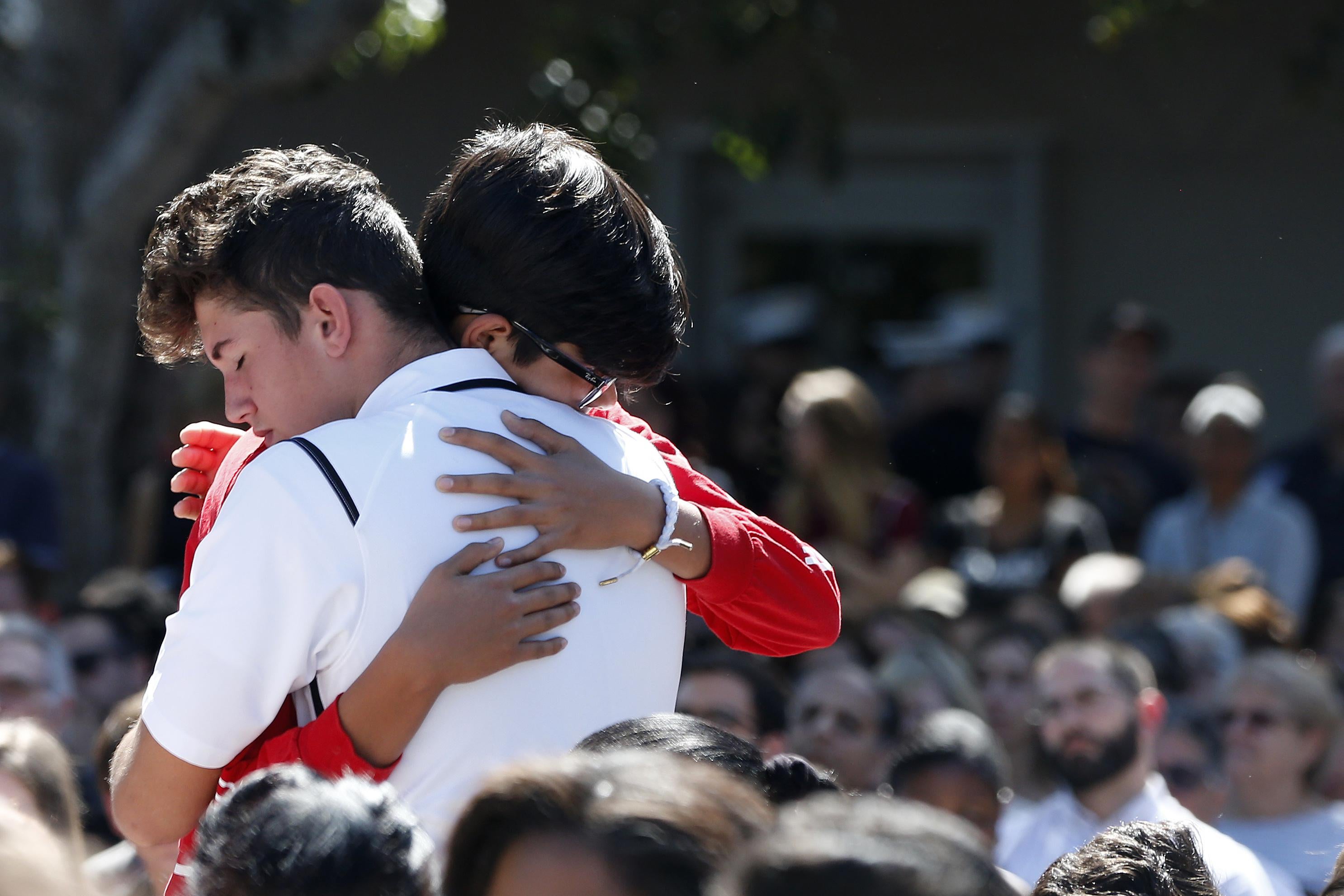It’s remarkable how easy it is to relate to the experience of a school shooting. Schools are such familiar, self-similar environments—the awkward chair-desks, the laminated maps—that the one on the news could easily stand in for yours. For parents, each news break threatens the fragile social trust required to leave your kid with strangers all day, even when the violence is thousands of miles away. You can picture it being your child with his hands up, marching through the parking lot. In other words, it is easy to make each tragedy our own.
For a staggering number of Americans under 40, however, it doesn’t require any leap of the imagination at all. According to an analysis conducted by the Washington Post earlier this month, more than 150,000 Americans have experienced a shooting on campus since Columbine in 1999. After Wednesday’s rampage at Marjory Stoneman Douglas High School in Parkland, Florida, you can add 3,000 more kids to that list. Together, America’s school shooting survivors would make up a city the size of Savannah, Georgia or Syracuse, New York. A whole city knowing the trauma of what we still, wrongly, insist on calling the unthinkable.
That’s to say nothing of another 300,000 parents, give or take, and tens of thousands of teachers and other adults who were there too. We remember those who died—like the assistant football coach Aaron Feis, who was killed shielding students on Wednesday; or Dawn Hochsprung, the principal of Sandy Hook Elementary, who lunged at another shooter armed with an AR-15. But there are thousands and thousands more who live with the memories.
Then there are all the students and teachers who are waiting for it, who know by now the routine, having been subject to endless shooter drills like their grandparents were for air raids. Perhaps that’s why the students at Douglas High were ready to live the horror on the internet for an audience of millions. And then came the uncanny experience of watching people who had survived school lockdowns comforting people who weren’t sure if they would. “I’ve been here. I curled up as small as I could for over 3 hours, and hid under one of those chairs because there wasn’t anymore room against the wall,” one woman tweeted.
This kind of outreach—the 150,000 saying, “I’ve been there”—happens regularly now, sometimes through formal networks like the Rebels Project, which unites mass trauma survivors. When two students were killed and 21 were injured at a school shooting in Kentucky last month, survivors of Columbine and other school shootings were there to offer support. Just another shared American experience.
After the shots subsided and the news crews rolled in, survivors of the Parkland shooting were on television, again with poise. Senior David Hogg calmly told MSNBC, “We’re the children. You guys are the adults. You need to take some action and play a role. Work together, come over your politics, and get something done.”
Talking about the president, sophomore Isabella Gomez told the network, “He really needs to take into consideration gun control. There’s no reason that a kid, 19 years old that’s been investigated already, and not even a year ago, being able to purchase an AR-15.”
In contrast, Florida Gov. Rick Scott—a Republican who has overseen the state-sponsored invalidation of local gun laws in places like Broward County, where the massacre occurred, and is widely expected to run for Senate this year—was still invoking the standard GOP line. Asked by reporters what business a 19-year-old had with a semi-automatic rifle, Scott said it was neither the time nor the place to discuss that. As if it was the 65-year-old Scott who was the shell-shocked evacuee and teenage Gomez the cool-headed lawmaker.
Republicans have been obfuscating in the wake of mass shootings for so long it’s become a bit of a very dark joke. Thoughts and prayers. Wouldn’t want to politicize this tragedy. What about knives. There was a time, many shootings ago, when I got that. I understood the impetus to wait until the blood had dried to write new laws.
But school shootings are too frequent to qualify for that exceptional status anymore. For years, we thought it would be the escalating horror that might finally prompt bans on semi-automatic weapons or restrictions on selling guns to people with mental illnesses. Maybe it’s the opposite. After 150,000 survivors, a school shooting is normal now, and that normalcy makes it fodder for immediate, serious, political discussion. The kids have figured that out.
